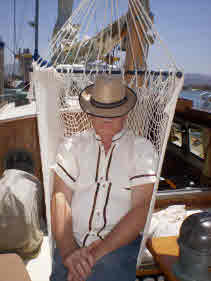Christmas celebrates the birth of Jesus and Easter commemorates the season of his death, burial and resurrection but are they based on fact? No serious scholar doubts Jesus of Nazareth had a birthday and a day on which he died but how certain are we of those exact dates?
Frankly, Christmas Day was chosen on the basis of convenience. Of course there is no doubt Jesus was born but the exact date is completely lost in antiquity. In fact, the Bible says Jesus was born while Herod the Great reigned but Herod died in 4 B.C.! It’s more than likely that Jesus was born around 6 B.C. but, as for the day or the month, that’s anyone’s guess. The earliest Christians didn’t celebrate Christmas and much later, when some of them wanted to create a holiday to celebrate his birth, they chose an existing pagan holiday and “sanctified” it with new meaning.
On the other hand, while “Easter” with its bunnies and eggs was also a pagan holiday, the timing is pure coincidence. The events surrounding the death, burial and resurrection of Jesus were linked to the Jewish feast, Passover, and have been celebrated every Sunday from the very beginning of Christianity.
Passover celebrates the liberation of the Jewish people from Egyptian slavery (Exodus chapter 12). On the night of the 10th plague, the Israelites sacrificed a lamb and painted its blood on the doorposts of their houses. The “death angel” passed-over their homes when he saw the blood sparing those within. Blood represents life and it took the sacrifice of an innocent life to set them free. Likewise, the historical Jesus died on the eve of an historical Passover giving his life to set us free.
Since Passover is a lunar holiday, the date on our calendar varies from year to year. Likewise Christians have been divided about whether to celebrate the anniversary on the actual date of the event (which would fall on different days of the week) or to always link it to the actual day, Sunday. Here, in the West, it is traditionally celebrated on “Resurrection Sunday” and while we honor the death, burial and resurrection of Jesus every week (as Christians have from the beginning) it is especially heart-warming to celebrate Resurrection Sunday knowing it is firmly based in historical fact.
Looking for some place to worship on Easter? Why not visit the Canyon View Church of Christ in the Clairemont neighborhood of San Diego? Won’t you join us Sunday, March 31st? We’ll enjoy coffee and breakfast breads starting at 9:00 AM with a special presentation for all of the adult classes in the auditorium to follow at 9:30. Worship will joyfully begin at 10:00.








